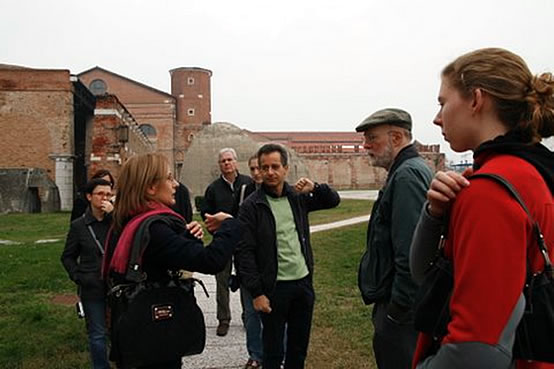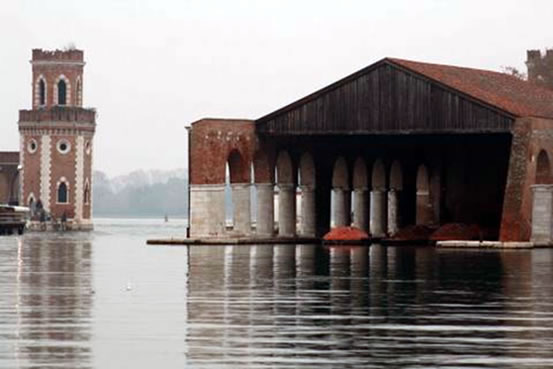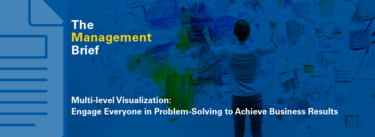A few weeks ago I walked through the Arsenale in Venice, which has been in continuous use for building and overhauling military ships since 1104. The Arsenale is still an Italian naval base and visiting requires permission from navy headquarters in Rome. But my interest was not in present-day activities. It was in the remarkable history of the Arsenale as a landmark in the long history of lean thinking.

Jim Womack (right); Arnaldo Camuffo (right center), scientific director, Lean Enterprise Center Italy; and John O’Donnell (center), executive director, Lean Global Network; visit the Arsenale in Venice on November 14, 2009.
During the 1400s the Venetians made a remarkable leap in thinking about the organization of design and production. They adopted a standard design for their war galleys and began to think systematically about producing these ships in volume. By the mid-1500s they were manufacturing in advance and kitting the parts for the hundreds of ships built each year. Then, when military need dictated, pre-built hulls were caulked at the first production station and lowered into the water. They were then floated past numerous assembly stations for installing the masts, the steering, the flooring, the seats, the oars, the guns, and all of the items needed to complete the most complex manufactured product of that era. Thus we have the first known example of “flow” production in process sequence using standard designs. And by 1574, when King Henry III of France visited to observe the process, the Arsenale could caulk and final assemble a galley in only an hour. (Fortunately for us, the basic layout of the Arsenale hasn’t changed since the 1500s so it is still possible to imagine how the work was done.)

One of the floating assembly halls in the Arsenale, Venice
As I walked through the Arsenale and reflected on what the designers and production workers there contributed to human knowledge and best practice, I found myself wondering what we will add on our watch 500 years later. By my reckoning, our watch (or at least my watch) is the period after 1979 when the practices developed at Toyota, Honda, and their hundreds of suppliers in Japan were first transferred to new countries and new industries.
It seems to me that we have already achieved several things of lasting value:
- We have transferred and adapted lean process tools for production, product development, supplier management, and customer support to a wide range of industries in a wide range of countries.
- We have experimented with all of the management tools – policy deployment, A3 analysis, and standardized management with kaizen – that are needed to introduce and sustain these process tools.
But we haven’t combined all of these tools and management methods in more than a few organizations and even these are struggling in the turbulent conditions that the world economy will apparently continue to provide. So what is reasonable to hope for in the remainder of our watch, which in my case is probably the next ten years?
It’s not realistic to hope that all organizations will become lean. And this wish makes no sense in any case because lean thinking will continue to evolve with changing circumstances and as the customer problems needing solutions change. The journey never ends as long as there is ever-changing life.
But can we hope to reach a landmark intermediate destination? Specifically, can we create at least one complete lean enterprise in every major industry and activity by 2020? By a lean enterprise I mean an organization that focuses clearly on the customer problems it seeks to solve and implements lean product development, fulfillment, supplier management, and customer support processes tied together by lean management to cost-effectively solve them.
This surely is a stretch goal and seems all the more daunting given the recent struggles of our lean exemplar companies. But we already have most of the knowledge in hand so no fundamental invention is required. And all of the elements of lean enterprise have been tested individually in real organizations. So the question is whether we think we can. And the only way to find out is to conduct a wide range of experiments within the global Lean Community, freely sharing our findings in the spirit of PDCA. For my part, I’ll continue to think that we can until our experiments conclusively prove we can’t.





